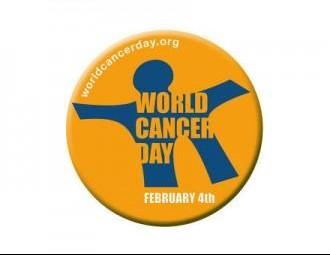Iryna Zhyhar: After three years we created stable communities of cancer patients

On February 4 World Cancer Day is marked. This year the focus is on information campaign under the tagline “Debunk the myths”, aimed at reducing stigma and dispelling myths about cancer.
Iryna Zhyhar, an oncological patient, the chairperson of the Republican Public Association "Belorussian Organization of Working Women" (BOWW), shared her three-year experience in creating groups of cancer patients throughout Belarus in the interview with the EuroBelarus Information Service.
- I speak not only on behalf of the women’s organization, but as an oncological patient with 20 years of such experience. The communication and collaboration, which started in May 2011 with the round table “Together against cancer” in the Academy of Science, today finishes its first round. And it has been 15 years now since international community marks February 4 as a date timed to the signature of Paris Charter.
Three years ago there were no support groups in Belarus; and my second oncological disease became a certain benchmark, when I realized that I have to start this work which other people have started before me. In due time “In rays of hope” union was working in Belarus; but, unfortunately, this organization stopped its work after the death of its co-founder, Iryna Kazulina. When I was reviewing the experience our country has, I realized that it is important to start our work from doctors. This work cannot be localized, as psychological trauma affects patients regardless of the type of cancer that has been diagnosed. It was very important for me to understand that we don’t have to divide the community of cancer patients, but we should rather look for like-minded people, who will continue our work. I am happy that after three years we created quite stable communities of cancer patients.
I am also happy that the doctors supported me, as it is impossible to do this serious work and combat cancer being alone. And seven groups in even different cities is a great achievement for Belarus, whatever anyone might say. The voice of those who recovered is a big argument in the dialog between the doctors and their patients, when they are trying to explain that cancer doesn’t mean that you will die. This myth lives not only in Belarus; however, our country is notable for it due to people’s closure and frequent aggression towards the patients. For instance, some people still believe that cancer is an airborne disease. My working practice shows how great is the blind fear that overcomes people when they got to know their diagnosis. This fear made people attend support groups and demand some guarantees. But nobody can give any guarantees today, and it is the doctors who get all the aggression and negative emotions from the patients. Thus, this is a complex problem; and we encounter the difficulties we have never thought about. The communities of oncological patients are important for the doctors, too, as we should help them to overcome the psychological stress, which appears in result of the aggression they are living in.
-
03.01
-
07.10
-
22.09
-
17.08
-
12.08
-
30.09



























